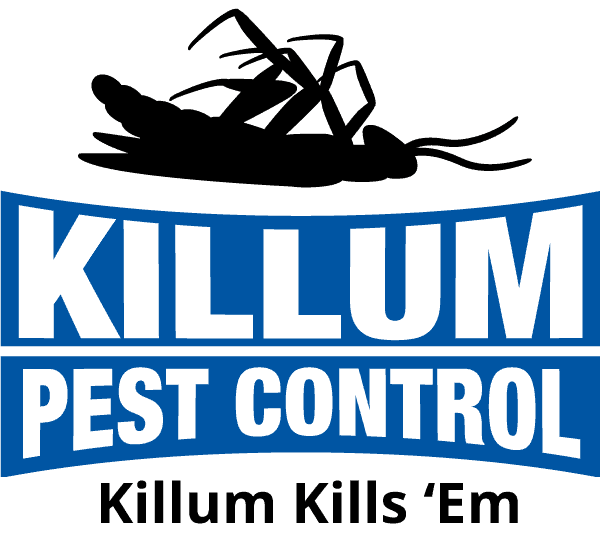Outdoor living spaces are an integral part of Texas homes, and maximizing the comfort and enjoyment of your backyard is essential. Unfortunately, mosquito infestations can significantly impact how you and your family experience your outdoor areas due to the irritating bites and potential health risks associated with mosquito-transmitted diseases. As a result, adopting effective and sustainable mosquito-proofing strategies is crucial in creating an inviting and pest-free backyard oasis in Texas.
In this comprehensive guide from Killum Pest Control, we will outline essential tips and techniques that Texas homeowners can implement to establish effective outdoor pest control in their backyards, focusing specifically on minimizing mosquito populations and reducing the threat of mosquito-borne diseases.
By incorporating these mosquito-proofing strategies into your backyard management plan, you can enhance the comfort, safety, and enjoyment of your outdoor living spaces, while maintaining a sustainable and environmentally responsible approach to pest control.
Let’s embark on the journey towards a mosquito-free Texas backyard and discover the best pest control methods for enhancing your outdoor experience and safeguarding your loved ones from the risks associated with mosquito infestations.
1. Identifying and Eliminating Mosquito Breeding Grounds
The first and most crucial step to mosquito-proofing your Texas backyard is to identify and eliminate potential breeding grounds. Mosquitoes lay their eggs in standing water, and even the smallest amount of stagnant liquid can serve as a breeding site. Here are some common water-harboring areas to address:
– Birdbaths: Change the water in birdbaths every couple of days to prevent the development of mosquito larvae.
– Rain gutters: Keep gutters clean and free of debris to ensure proper drainage and prevent water buildup.
– Potted plants: Avoid using saucers for outdoor potted plants, as standing water in these dishes can attract mosquitoes.
– Outdoor equipment: Store equipment, such as wheelbarrows and gardening tools, in a dry area to prevent water accumulation.
– Puddles and low-lying areas: Fill low-lying areas in your yard that collect water with soil or gravel to improve drainage and prevent puddling.
2. Landscaping Strategies for Mosquito Control
Strategic landscaping can significantly help reduce mosquito populations in your Texas backyard. By maintaining a well-kept outdoor space and implementing pest control solutions, you can minimize the presence of mosquitoes and enhance the overall ambiance of your backyard. Consider these landscaping techniques:
– Regular lawn and shrub maintenance: Overgrown grass and shrubs provide shelter and resting spots for mosquitoes. Keep your lawn neatly trimmed and dense foliage pruned to reduce hiding places.
– Maintain water features: If you have a pond or water garden in your yard, ensure that the water is flowing and properly circulated to deter mosquito breeding. Adding larvicide to water features can help control mosquito populations, as well.
– Optimize drainage: Carefully design and maintain your backyard drainage system, including the use of French drains, to eliminate standing water and prevent the formation of mosquito breeding sites.
3. Integrating Mosquito Repellent Plants into Your Backyard Design
Certain plants are known to have mosquito-repellent properties, making them a valuable addition to your Texas backyard design. Intersperse these plants throughout your outdoor living spaces and garden beds to create a natural barrier against mosquitoes. Some proven mosquito-repellent plants include:
– Citronella: This popular plant is the most well-known natural mosquito repellent and emits a strong scent that masks attractant odors, confusing mosquitos’ olfactory senses.
– Lemon eucalyptus: The essential oils in lemon eucalyptus have been shown to provide effective protection against mosquitoes when applied to the skin or as a spatial repellent.
– Lavender: The calming scent of lavender deters mosquitoes and other insects while beautifying your backyard landscape.
– Marigolds: In addition to their lovely appearance, marigolds contain a compound called pyrethrum, which repels mosquitoes and other insects.
4. Utilizing Natural and Eco-Friendly Mosquito Control Solutions
In addition to strategic landscaping and the use of mosquito-repellent plants, there are natural and eco-friendly mosquito control solutions available to help you maintain a mosquito-free backyard. Some effective options include:
– Natural insect repellents: Non-toxic, plant-based insect repellents, such as those containing oil of lemon eucalyptus, provide a safe alternative to standard chemical repellents in protecting your family from mosquitoes.
– Mosquito traps: Commercial mosquito traps, such as CO2 traps, can help capture and reduce mosquito populations in your backyard.
– Bat and birdhouses: Bats and many bird species feed on mosquitoes and other insects. Adding bat and birdhouses to your backyard can help attract these natural predators and reduce mosquito populations.
– Essential oil candles and diffusers: Scented candles and diffusers containing mosquito-repellent essential oils, such as citronella, lemongrass, and peppermint, can be placed around outdoor seating areas to create a mosquito-repellent barrier.
Final Thoughts
Implementing effective mosquito-proofing strategies for your Texas backyard is essential for creating a safe and comfortable outdoor environment for you and your loved ones. By identifying and eliminating breeding grounds, incorporating thoughtful landscaping measures, integrating mosquito-repellent plants, and using natural and eco-friendly control solutions, you can enjoy a mosquito-free backyard oasis all season long.
Don’t let mosquitoes ruin your outdoor enjoyment. Contact Killum Pest Control, a leading pest control company in Houston, today to request a personalized consultation and learn more about our effective mosquito control solutions, tailored to your specific needs and preferences. Together, we can transform your Texas backyard into a mosquito-free, relaxing retreat.




